You don’t need to buy pills or powders. Simply eat these foods for younger skin, stronger hair and healthier joints.
If you’ve walked down a supplement aisle this year, chances are, you’ve seen collagen. This structural protein is the most abundant protein in our body, found in skin and other connective tissues. It’s also a buzzy topic in the supplement world right now, with companies glorifying collagen pills and powders for their ability to create youthful skin, healthy bones and cartilage, and strong hair and nails.
Our body naturally makes collagen, but it produces less as we get older. A decrease in collagen can result in loss of elasticity and structure throughout the body (cue wrinkles and looser skin). The thought is that if you consume more collagen, you can stave off ageing skin or degrading joints—an enticing claim. Still, some experts doubt that taking supplements is the best way to maintain your collagen supply.
“I definitely discourage people from supplementing collagen,” says Dr Ashley Barrient. “It’s going to be a waste of money, because your body is not actually going to utilise that extra collagen. Instead, a well-balanced diet rich in lean protein, heart-healthy fat, fruits and vegetables has all of the key collagen-synthesising nutrients you need.”
Even more, healthy whole foods have a variety of nutrients that often work in tandem to encourage the production of collagen and protect it from breaking down due to environmental damage. Read on for seven foods that will keep your skin supple, your bones healthy, and your hair and nails in tip-top shape by promoting your body’s natural production of collagen.
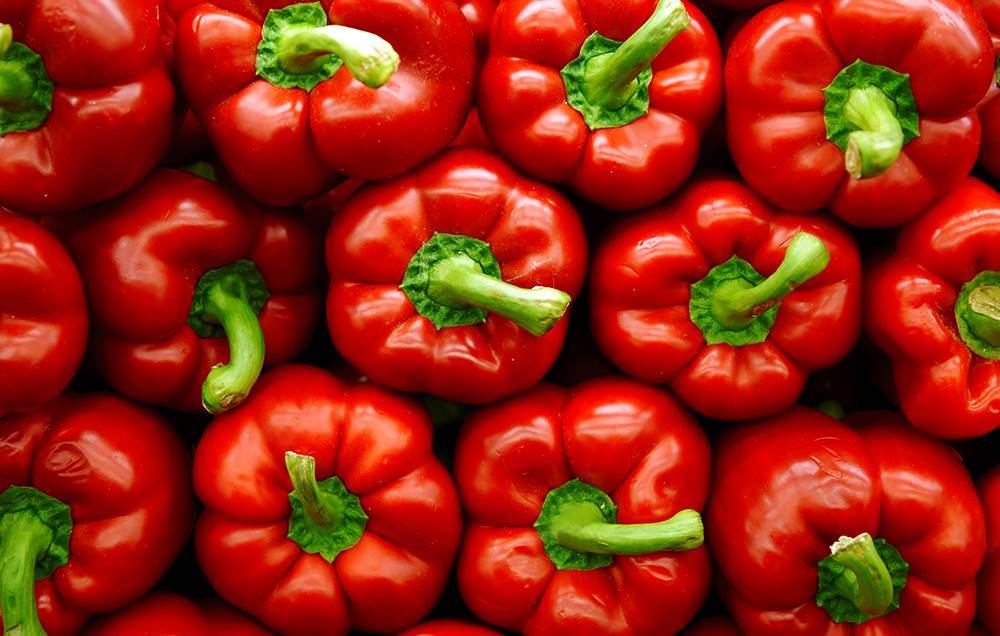
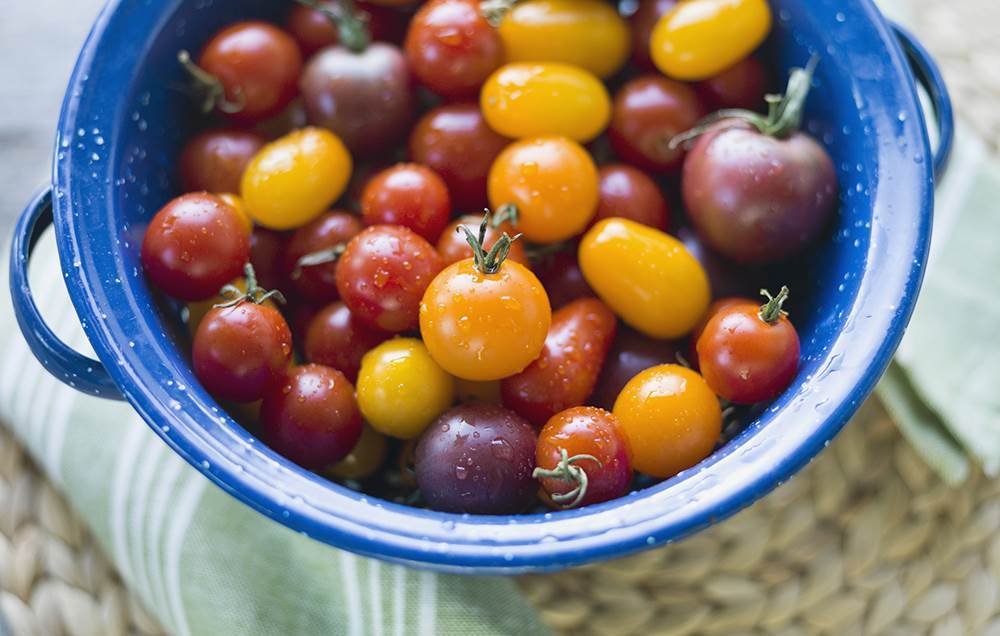
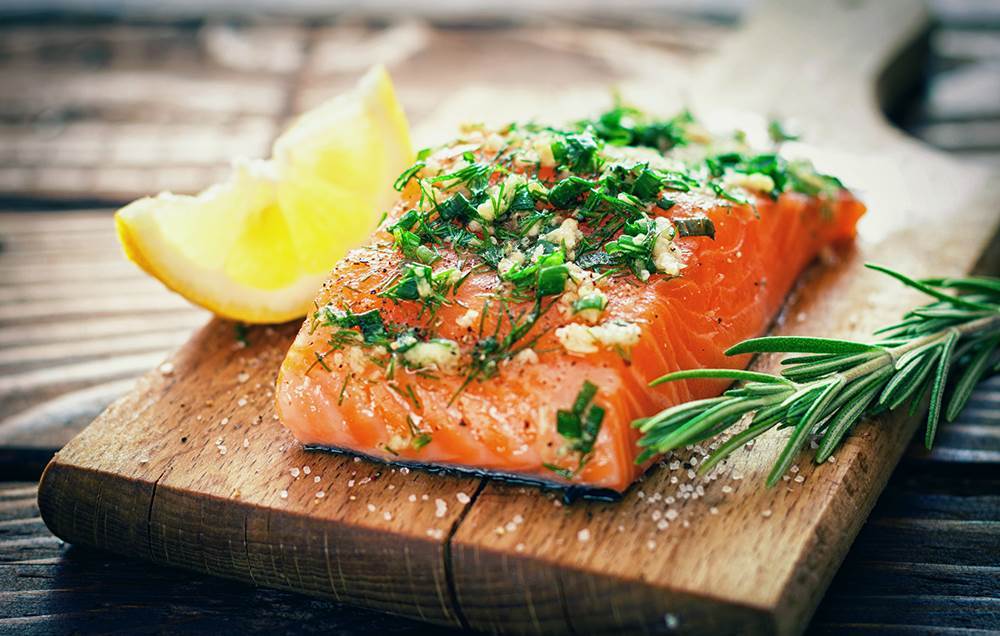
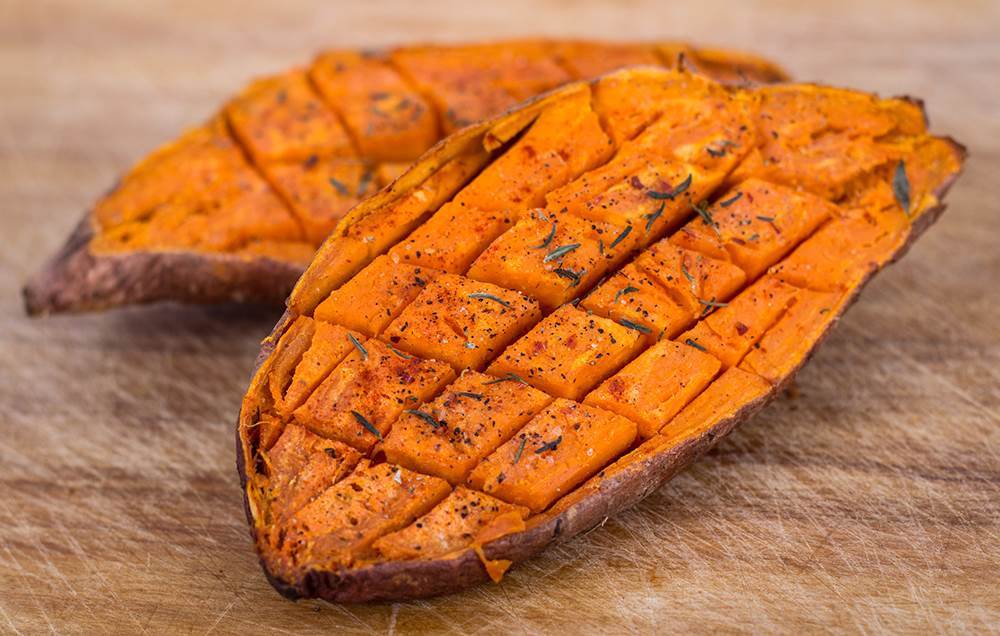
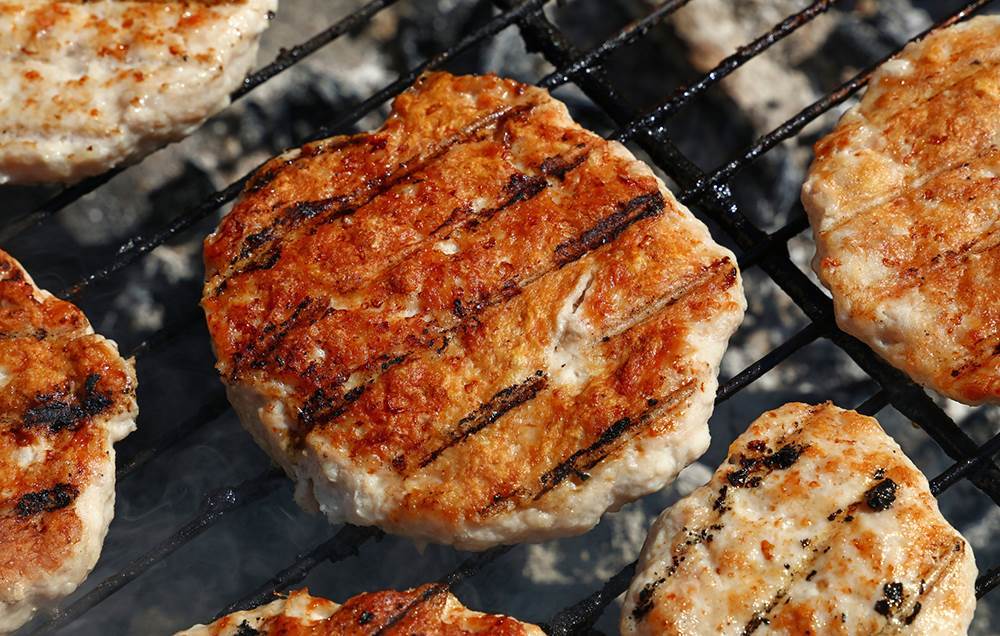
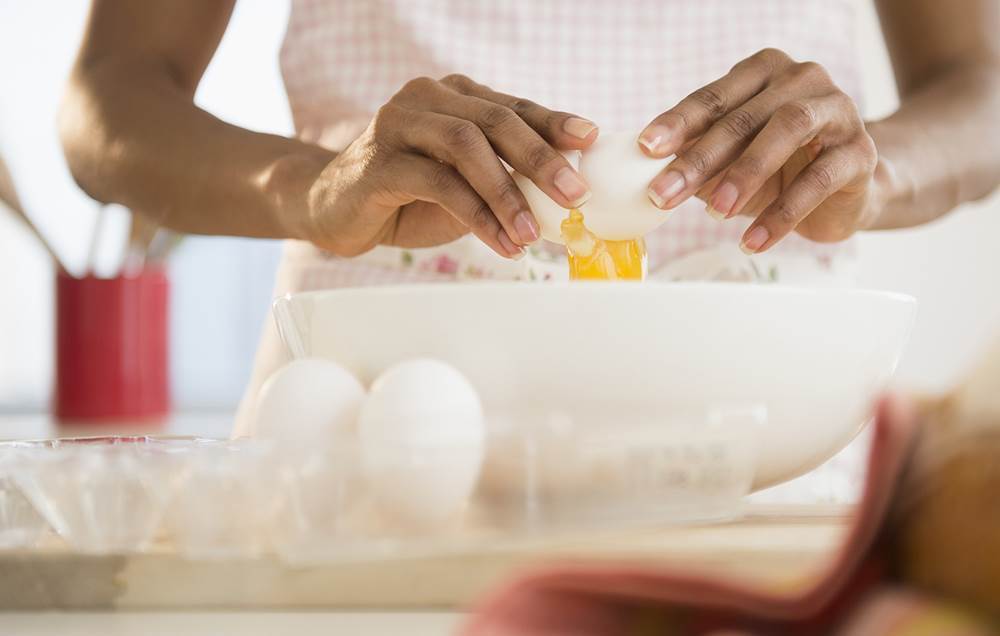
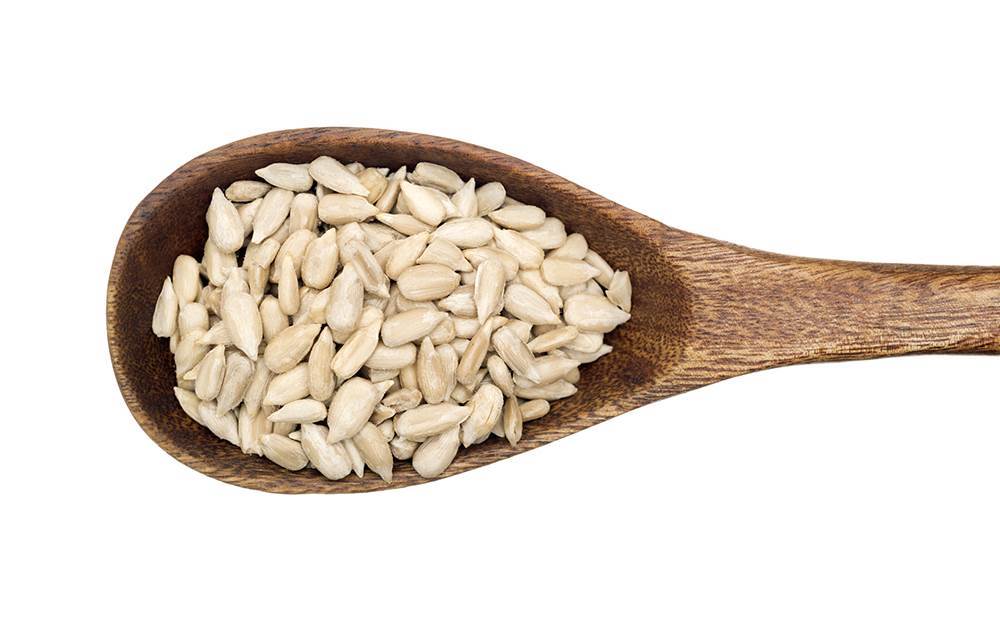
Red Capsicum
Vitamin C is crucial for a healthy supply of collagen, and it’s packed into red capsicum. “Vitamin C is an antioxidant that promotes collagen synthesis,” says Barrient. “In the absence of a vitamin C-rich diet, the body cannot produce collagen as effectively.” Just ½ cup of raw red capsicum provides 158% your daily dose of vitamin C with 95 mg per serving. Other good sources of vitamin C include grapefruit, kiwifruit, green capsicum, broccoli, strawberries and oranges.
Try this: The next time you’re craving hummus, dip into it with fresh slices of capsicum instead of salty pita chips. Fresh capsicum provide just as much crunch, but with that good dose of collagen-boosting vitamin C.
Tomatoes
High in the antioxidant lycopene, tomatoes can help protect your collagen supply from environmental damage. “One of the ways we lose our collagen as we age, besides producing less of it, is from damage by pollutants and ultraviolet radiation,” says dermatologist Dr Mary Stevenson. “This damage accelerates the breakdown of collagen. Lycopene can help protect the skin and preserve your collagen levels.” Lycopene is also found in other red and orange vegetables, such as watermelon and pink grapefruit.
Try this: Cheesy tomato slices are a quick (and delicious!) appetiser or side. To make, preheat oven to 200° C. Sprinkle tomato slices with shaved Parmesan cheese, garlic powder and dried basil. Bake until cheese is bubbly, about 10 minutes.
Salmon
You know you’re supposed to eat fish for heart-healthy fats, but did you those fats can also protect your skin from fine lines and wrinkles? Salmon, in particular, is an excellent source of healthy omega-3 fatty acids, which ease inflammation and prevent collagen breakdown caused by environmental damage—similar to lycopene. “Excessive exposure to sunlight can damage collagen synthesis and promote inflammation of the skin,” says Barrient. “Eating omega-3 fatty acids, which are most prevalent in seafood, really helps counteract that inflammation and protect your collagen.” Other good sources include avocado, walnuts, and chia seeds.
Try this: For an extra dose of omega-3 fatty acids, top baked salmon with a green salsa of chopped avocado, red onion and lime juice.
Sweet potato
By eating just one baked sweet potato, you can snag six times your daily value of Vitamin A, and keep your skin and joints healthy. “Vitamin A actually targets nuclear messaging to encourage your body to make collagen,” says Stevenson. “It will help you restore more collagen.” Vitamin A also supports cell growth, and plays a crucial role in the normal formation and preservation of the body’s organs (the largest of which is your skin), according to the National Institutes of Health. In addition to sweet potatoes, vitamin A is found in carrots, rockmelon, mangos and apricots.
Try this: Add sweet potato puree to a smoothie for a creamy drink that nods to the fall season—it’s particularly delicious blended with frozen bananas and a touch of nutmeg or cinnamon.
Lean turkey
Many essential amino acids are involved in producing collagen. For this reason, it’s important to consume enough protein, which is made out of amino acids. Turkey is a good source of lean protein, plus lysine, one of the major amino acids that facilitate collagen production. “The three most common amino acids involved in the synthesis of collagen are proline, glycine and lysine,” says Barrient. “Lysine is an essential amino acid, meaning our body can’t naturally synthesise it, so we need to get it from food products.” Turkey is also rich in choline, which is converted into glycine for the production of collagen (more on that below). If you’re vegetarian, you can get lysine from non-animal sources such as soybeans—particularly tofu—and cashews.
Try this: Toss ground turkey into a cheesy pasta dish, or use in lieu of ground beef in a sloppy Joe sandwich (for an extra collagen-producing boost, add chopped raw red peppers to the mix). Alternatively, sauté tofu as the lean protein source in your next stir-fry.
Eggs
Go ahead: Eat the whole egg. Egg yolks are rich in choline, a B vitamin, which is converted into glycine—one of the amino acids involved in collagen production. “Because of this, consuming choline-rich foods can help with collagen formation,” says Barrient. Worried about cholesterol? Healthy people can eat up to 300 mg of cholesterol per day, and those with diabetes, high cholesterol or heart disease can consume up to 200 mg; one large egg has 187 mg. Chickpeas, navy beans, turkey, salmon and cauliflower are also good sources of choline, says Barrient.
Try this: Preheat the oven to 175° C. Pour beaten eggs into muffin tins and top with collagen-boosting veggies like tomatoes and red capsicum. Bake for about 20 minutes, or until set, for a quick breakfast on-the-go.
Sunflower seeds
Just 30g of dry roasted sunflower seeds provides 37% your daily dose of vitamin E. “Like other antioxidants, vitamin E is thought to help with free radicals, perhaps preventing damage,” says Stevenson. “That damage can otherwise cause wrinkles and sagging skin.” Other good sources of vitamin E include wheat germ oil, almonds, hazelnuts and peanut butter.
Try this: Sprinkle a handful of shelled sunflower seeds into a tuna salad for extra crunch, or use to top creamy avocado toast (for extra flavour, toast the seeds in a small skillet with olive oil until golden).










